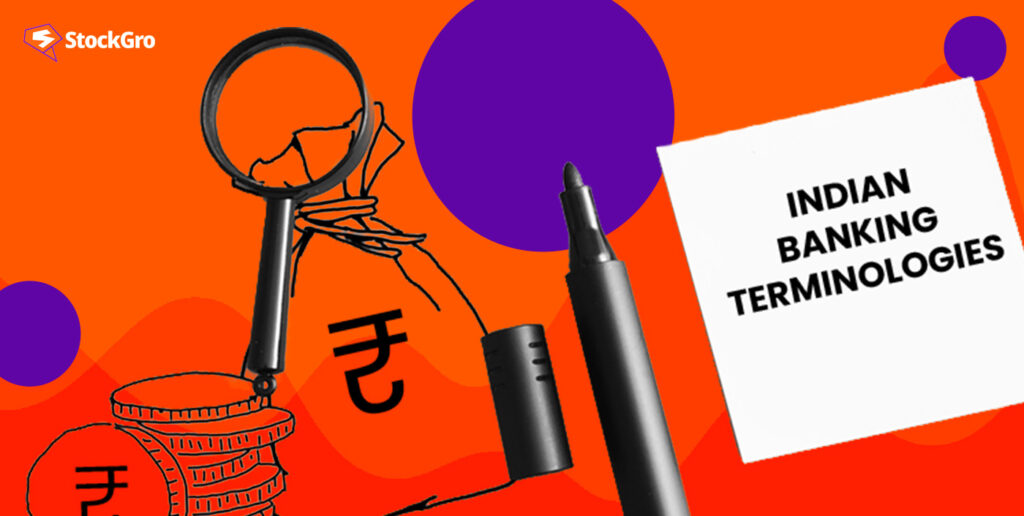
Irrespective of what industry we are talking about, there are many basic terminologies out there that every aspiring individual looking to have a career in the field must know. From small businesses to large organizations, there are many common terms that get used here and there. And it is not at all different in Indian banking. Let’s be honest: banking terms are not something you can get the first time you hear about them.
While banking terms and concepts have always been there in the economics book, half of us simply forgot about them, and the rest did not acknowledge them in the first place. However, as a retail customer, it is now more important than ever to understand these terminologies to benefit yourself in educating about finances and banking. In this blog, we will look at the ten basic banking terms everyone should know about.
You may also like: Kiosk banking: A convenient way to access banking services in rural India
- Repo & reverse repo rate
The first thing anyone should know about the basic banking terms is the Repo rate and the Reverse Repo rate. From retail banks to investment banks, there are many options out there.
In India, the repo rate is what we understand as the rate at which the Reserve Bank of India lends money to the commercial banks. It does so with keeping the collateral. It has been introduced to help out the banks during inflationary times. In India, the current repo rate is around 4.40%. There is also a similar concept known as the bank rate. The bank rate is currently around 4.25% and does not require collateral.
The reverse repo rate is basically what the name suggests. Its basic explanation is the rate at which the commercial banks lend money to the Reserve Bank of India. It is done so that the Reserve Bank of India can regulate the money supply in the market. The present reverse repo rate is around 3.35%.
- Base rate
Are you looking to consider taking a personal or home loan from your bank? You may avail a bank loan with an interest rate accrued on the loan. The base rate is known as the interest rate at which the banks lend money to their valuable customers. If we are to explain this in other words, the banks cannot charge the customer below the base rate. Whether it is a home loan or an educational loan, banks will charge an interest rate that is calculated encircling the base rate.
- Credit score
A credit score is basically a numerical representation of a person’s creditworthiness. It is basically a scale where the banks or leading authorities may evaluate you. If you have a good credit score that means you can be trusted with a loan. On the other hand if you have a lower credit score, there is major risk for the lender to grant you a loan. Credit score is also known as the CIBIL score. If you wish to maintain a good credit score then consider making the payments for your EMI timely.
- Collateral
Collateral is basically a valued asset. It can be gold land or any other asset or security that a borrower provides any bank in exchange for a loan. Collaterals are utilized in secured loans, and they are advantageous for any lending bank. If the debtor fails to pay the loan back, the lending bank may simply auction or sell off the collateral. It is a banking and finance terminology every individual should know who are planning to take a home loan or a car loan.
Also read: How loan securitization works: Transforming debt into wealth
- Statutory liquidity ratio
Before the bank could even start lending money to the customers, it is important that they maintain a certain amount of gold and other security measures. This kind of ratio is known as the Statutory Liquidity Ratio. It is there to regulate credit expansion in the country. As of now, the standard SLR rate is around 18.50%.
- Overdraft
An overdraft only happens when the account balance goes below zero, and the bank still lets the account holder make a transaction even when they do not have sufficient balance in their account. However, you should know that overdraft comes with a certain interest rate and charge, which is indeed an expensive venture. Therefore, if you are not ready to pay hefty charges, steer clear of such transactions. It is one of many important banking terms.
- Plastic money
It is a term used for banking customers who wish to perform any cashless financial transactions. Usually, plastic money refers to either a debit card that bank account holders hold to withdraw cash or pay bills or credit cards issued to customers eligible to make financial transactions.
- Non Performing Assets
For the banks of India, it is basically any loan that is overdue for more than 90 to 180 days. The interest or payment is missed, and the loan defaulted. The asset is not producing any income anymore, and thus it becomes a non-performing asset.
- Mortgage
It is a term that is more thrown around for the people who invest in real-estate. However, it is important that everyone should understand what a mortgage is. It is something that can be considered as a loan against a property you are buying. The asset which you will be buying acts as a collateral for the bank and you would be paying the bank monthly until the full loan is paid.
- Floating rate & fixed rate
When you are approved of a bank loan, the amount of the loan is disbursed to you for a significant loan term and interest rate. A fixed rate is applied when the mentioned interest rate is kept constant for the entire loan tenure. Basically, it is the interest rate that stays constant after the loan amount is disbursed to you.
On the other hand, a floating rate is something where the rate of interest is thoroughly viewed and evaluated periodically during tenure and is modified and altered according to the latest interest rate that is applicable. Fixed and floating rates are important banking terms.
Also read: Difference Between Microloans and Business Loans
Wrapping up
As we move forward in the feature, finance and technology will evolve together and every financial step would be done in an instant. As an individual it is a must to stay updated. While there are other basic banking terms out there that can help you be aware of finance and banking, these 10 terms are a must-know for every individual right now.

